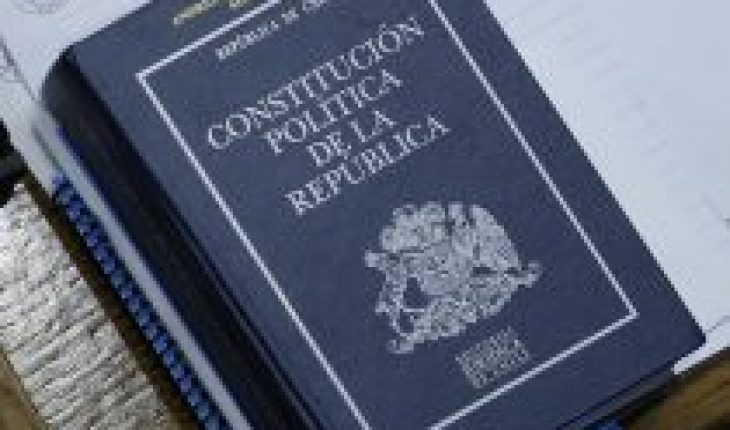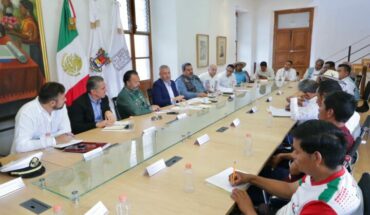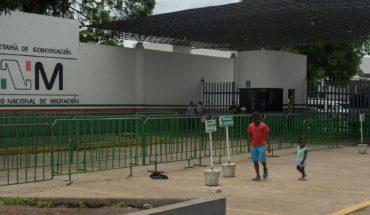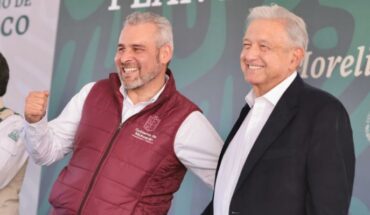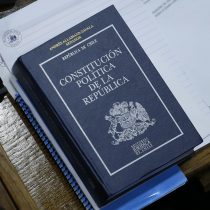
The constitution of ’80 responds to an anomalous tradition in the international context; Hispanic tradition. Among other things this means that it does not respond to the tradition of the French revolution, as most constitutions of the modern Western world do.
With tradition I do not mean here both the instrumental legal dimension and what we can call the soul of the constitution. Anyone who is given the task of studying the Official Acts of the New Constitution Study Committee, or Ortúzar Commission, established in 1973 by the military junta and whose purpose was the preliminary draft of the Constitution of 1980, will see that it has a Hispanic soul. By the way, those minutes also discuss and affirm the peninsular tradition in relation to legal-administrative and instrumental issues, such as when it comes to the role of municipalities or the space that should be given to jurisprudence, among other aspects. But that’s secondary.
The essence is that the Hispanic soul of a Constitution conceived as a restorer should exorcise the spirit of the French revolution. Just as it (just as the “American revolution”) is recognized as a key influence on independence, it is also now sought to erase its traces of Chile’s democratic institutionality. Indeed, the core of the matter is to replace a concept of democracy anchored to the notion of sovereignty of the people (own to the tradition of the French revolution) with one that, in these Acts is called “classic democracy”, and which basically responds to the medieval Catholic tradition of natural law, dating back to the Aristotelian-Tomist tradition and St. Isidore of Seville , among other parents of canon law.
According to this tradition, the rights of individuals, underpinned by a Christian conception of man, pre-legal, pre-State and democracy, and as such must be protected even against the State and democracy, when they are not instruments for their realization. The most fundamental task of a Constitution is precisely to put limits on the state and the possible outcomes of democratic play when they violate individual pre-political rights.
This formula of the right against the politics and sovereignty of the people could have been perfectly anchored to a liberal formula of natural law, such as that derived from Locke, for example. But it is precisely there that, contrary to liberal and neutral conceptions of the State, the Constitution of ’80 draws on what is called the Hispanic tradition to defend a Christian and Catholic conception of the individual and society. In the Acts of the Ortúzar Commission, the concept of “people’s sovereignty”, but not that of “common good”, is strongly rejected, to the extent that it is assimilated to a “way of life” expressing such a conception. All this to the point that, in those Acts, it was discussed whether or not to make an explicit reference to the Encyclical Pacem im Terris of John XXIII, precisely because of its exaltation of human values in this pre-political sense. It is on this hispanic theological background of natural law that it must be understood how secular notions such as that of state subsidiarity are set. Von Hayek will fit well, but it is not at the origin; is not the soul of the Constitution.
But this Hispanic discourse in these Acts aims for something else: instead of being conceived as another import of foreign ideas (as would be the French revolution and especially Marxism) it is stated that Hispanicism expresses the true essence of Chileanity. The national tradition, it is said in these Acts, is not derived from the French Revolution but from the Hispanic tradition, whose best expression in Chile’s national history would be the political thinking of Portales. Although not mentioned in the Minutes, the Hispanism of Jaime Eyzaguirre and his heirs, Mario Góngora and Bernardino Bravo, is smelled here. The nationalist Constitution (as it was called, as recorded in the first Acts, in 1973) never ceases to recognize foreign traditions and influences, such as German in the FFAA, English in political institutionality and French in cultural matters. But it is undoubtedly the “Hispanic essence” (so called in a 1974 Commission Memorandum) that is the most important influence.
This was so relevant that it was discussed whether explicit recognition “to Hispanic tradition” should be enshrined in the constitutional Memorandums. Ethis proposal, made by Alejandro Silva, was contradicted by Jorge Ovalle, not because she disagreed with such recognition but for fear that she would be interpreted as a nod to the “regime in force in the Motherland”; Franco’s government, still in force at the time of these discussions and with whose institutions the Ortúzar Commission had strong exchange relations. Ovalle responds “Chilean tradition… collects Hispanics and enriches it with our own experience, so that … it would be enough to refer strictly to our own tradition.” And so it was done, as is still recorded in article 22 of the Constitution of ’80.
In all this, the constitutional tradition emanating from the French revolution is put in the place of the non-national, if not the antinational. Even if he is not mentioned, Edmund Burke’s unforeseen conservatism is breathed here. All this permeates the soul of the Constitution of ’80, which cannot be unslaved through reforms, nod how many are done. Against this soul, the spirit of a new Constitution should be re-anchored to the tradition of the French revolution, as do the vast majority of the constitutions of the modern world, in which human rights and the sovereignty of the people are combined, in a single republican formula, as issues that go hand in hand and nurture each other.
The content poured into this opinion column is the sole responsibility of its author, and does not necessarily reflect the editorial line or position of El Mostrador.

